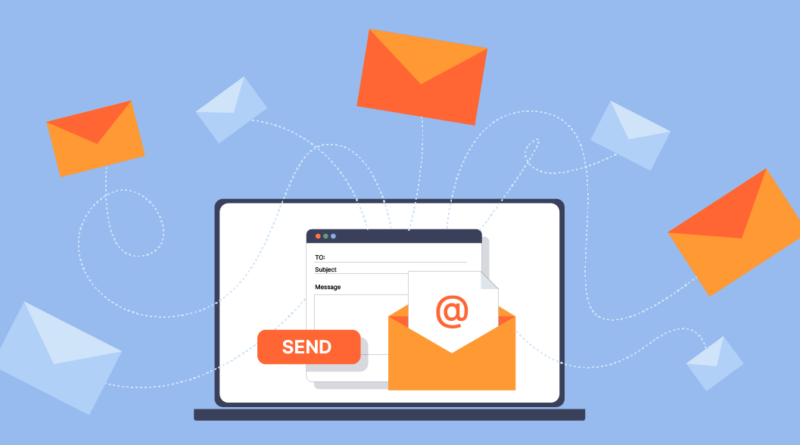Crafting Effective Emails: 12 Tips for Clear and Impactful Communication
Table of Contents
In the digital age, email has become an indispensable tool for communication, serving as a lifeline connecting colleagues, clients, vendors, and more. However, not all emails are created equal; some are too long, while others are too brief. Some exude excessive formality, while others are too informal. The content of certain emails can even land a company in legal trouble. To harness the power of email effectively, it’s crucial to master the art of crafting well-structured, concise, and collegial messages that serve their purpose and save time for both sender and receiver.
This article delves into 12 indispensable tips to help you become an expert in writing effective emails. Whether you’re a professional communicating with coworkers or reaching out to clients, these strategies will make your email communication smoother and more impactful.

Subject Lines Are Important
A well-crafted subject line is the gateway to your email’s content. Nothing is more frustrating than receiving an email with a misleading or irrelevant subject line. A clear and descriptive subject line not only saves time for the recipient but also ensures that your message is found easily in a crowded inbox.
Use Bullet Points and Highlight the Call to Action
Emails should be easy to read and digest. Bullet points are a great way to break down information, making it more accessible. If your email requires the recipient to take action, highlight the call to action to ensure it doesn’t get lost in the text.
Keep It Short and Sweet
In a world where time is precious, no one has the bandwidth to read lengthy, convoluted emails. Keep your emails concise, focusing on the key points and avoiding unnecessary information. If your email stretches beyond a few paragraphs, it might be time to reconsider your approach.
Don’t Muddle Content
Clarity is the cornerstone of effective communication. Stick to one subject or content area per email. Mixing different topics within a single email can lead to confusion and difficulties when searching for specific information.
Be Collegial
Begin your emails with a touch of politeness and warmth. Adding a friendly greeting or well-wishing message can set the tone for a positive and collaborative exchange. It’s a small gesture that goes a long way in building rapport.
Watch Your Tone
The tone of an email can be misinterpreted, so tread carefully. Avoid using excessive exclamation marks or inflammatory language that might be misconstrued. Maintain professionalism and courtesy in all your written communications.
Avoid Excessive Exclamation Marks and Emojis
While enthusiasm is great, too many exclamation marks can be overwhelming and may convey unintended emotions. In a professional setting, it’s best to limit or avoid them altogether. Additionally, emojis should be reserved for personal correspondence, not professional emails.
Avoid Quotes That Could Be Offensive
Using inspirational quotes can be motivating, but be cautious about their content. Quotes with religious or potentially divisive themes may offend recipients. Keep your email environment inclusive and non-controversial.
Always Proofread Your Emails
Spelling and grammatical errors can undermine your professionalism. Taking a moment to proofread your emails can save you from potential embarrassment and ensure your message is clear and concise.
Never Send an Email When Angry or Frustrated
Emotions can cloud judgment. If you’re upset or angry, avoid sending emails in the heat of the moment. Draft your message in a Word document and revisit it when you’ve had time to cool off. This simple precaution can prevent misunderstandings and preserve professional relationships.
Email Chains
While email chains can be effective for group communication, they’re not always the best choice. In some cases, picking up the phone for a quick conversation can resolve matters more efficiently than multiple emails. If you do continue an email chain, be sure to update the subject line to reflect the current content or topic.
Legal Ramifications
It’s essential to be aware of the legal implications of your emails. They can be used as evidence in a court of law, and your employer owns the emails sent from your work address. Never include defamatory comments, harassment, admissions of wrongdoing, accusations of criminal activity, promises of quid pro quo, or commitments that can’t be fulfilled in your emails. Protect yourself and your company by maintaining professionalism and integrity in your email communications.
Countless articles have been written on crafting effective emails, but the challenge persists. In an era of character-limited tweets and quick text messages, the art of writing has been somewhat overlooked. These 12 tips provide a blueprint for constructing effective emails that not only convey your message but also make it easier for the recipient to engage with your content.
By following these rules, you’ll produce better-written, more easily understood emails that are less likely to prompt follow-up questions. Ultimately, this saves time, allowing you to focus on more critical tasks.
Conclusion
Crafting effective emails is an essential skill in today’s fast-paced, digital world. Email serves as a cornerstone for professional communication, and mastering it can boost productivity and build positive working relationships. The 12 tips provided here offer a practical guide to enhancing your email communication, making it clear, concise, and courteous. By following these guidelines, you can ensure that your emails serve their intended purpose, leaving a positive impression on your colleagues, clients, and collaborators.
Why is it important to use bullet points in emails?
Bullet points make emails more readable and help convey information concisely.
Can I use emojis in professional emails?
It’s best to avoid using emojis in professional emails to maintain a formal tone.
How can I ensure my emails are legally sound?
Avoid making defamatory comments, engaging in harassment, admitting wrongdoing, accusing others of crimes, promising quid pro quo, or making unfulfillable commitments in your emails to protect yourself and your company legally.
Why is it essential to watch your tone in emails?
Tone can be misinterpreted in written communication, so it’s crucial to maintain professionalism and courtesy in your emails.
What’s the best approach when angry or frustrated in professional communication?
When upset, it’s advisable not to send emails immediately. Draft your message in a Word document and revisit it when you’ve calmed down to ensure a more rational and professional response.
How can I make email chains more effective?
Ensure that email chains have clear and updated subject lines to reflect the current content or topic. However, sometimes it’s more efficient to have a quick phone conversation instead of engaging in lengthy email chains.

